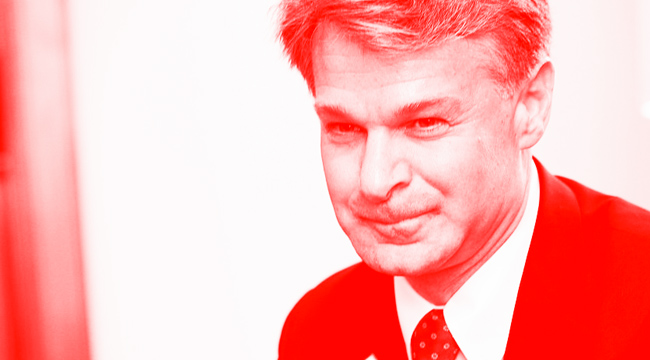
Nearly two full months after President Donald Trump plucked him from national obscurity in early June, the U.S. Senate confirmed Christopher Wray as the new FBI director on Tuesday. The George W. Bush-era assistant attorney general, who since went into private practice, has maintained an otherwise normal political life when compared to other Trump administration officials (past and present). However, Wray contradicted the president at several turns during his Senate confirmation hearings, thereby casting doubt on his possibly becoming the agency’s anti-James Comey. Wray was confirmed by a vote of 92 to 5.
In a prior report by Politico, Republican and Democratic party leaders began negotiations for a “broad package of nominations ” in the hopes of fast-tracking many of them before the August recess. Wray’s nomination as FBI director, however, was not a part of the package since the former Bush appointee’s record and testimony hadn’t ruffled too many (or any) of the committee’s feathers. “We obviously need to confirm an FBI director,” Sen. Mitch McConnell (R-Kentucky) said Tuesday morning, noting that the Senate Judiciary Committee had confirmed Wray unanimously with a 20-0 vote.
Four hours of Senate debate were scheduled for Tuesday afternoon, while the vote itself was set for 6:15pm ET. Despite the time commitment, Wray’s nomination and confirmation ultimately proved to be the exact opposite of former FBI Director James Comey’s firing, his subsequent congressional testimony, and Trump’s bonkers search for a replacement. Aside from the new director’s political and private standing, Politico noted the appointment of Special Counsel Robert Mueller ultimately led Democrats and other potential detractors from fighting over his nomination.
